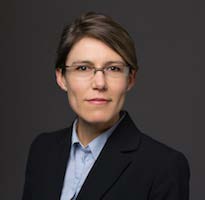 Abstract: Cancer is a disease whereby multiple genetic mutations confer upon cancer cells the ability to
Abstract: Cancer is a disease whereby multiple genetic mutations confer upon cancer cells the ability to
endlessly proliferate, evade death, and activate their environment. In every stage of solid tumor development—
from tumor initiation to metastasis—abnormally stiff tissue and increased mechanical stresses have been
implicated. Increased stiffness of the tumor environment is, in general, a hallmark of solid tumors, which can
sometimes even be palpated. Moreover, increased mechanical stresses result from tumor growth itself. The
abnormally stiff tissue and increased mechanical stresses associated with solid tumor growth present different tissue-level biomechanical signals than during healthy tissue growth. Biomechanical signals —translated by cells into biochemical signals via mechanotransduction—are known to effect cell behaviors such as gene expression, phenotype, and differentiation. However, exactly how the biomechanical signals regulate tumor-scale development is not known. Our research is focused on gaining a fundamental understanding of the relationship between the biomechanical environment and the initiation and progression of solid tumors. Due to the myriad factors involved, we engineer in vitro model 3D tumor microenvironments to target particular biomechanical aspects of tumor growth and metastasis, e.g., growth against mechanical stress and interactions with ECM proteins in specific 3D patterns. Engineering precise, yet simple, systems allows us to study the broader physics principles of tumor growth and tumor cell interactions with their microenvironment. For example, we have recently shown that tumor growth morphology is highly sensitive to the mechanical microenvironment. Using such a systems approach, our overall goal is to identify biomechanical drivers and mechanotransduction pathways in cancer biology. An understanding of the biomechanical drivers and the mechanoreceptors they act on will open new pharmacological approaches to target the tumor microenvironment or mechanoreceptors. To accomplish our goals, we use a combination of techniques, including experimental mechanics of materials, solid and fluid mechanics, micro-fabrication, soft lithography, cell culture and biology, live-cell imaging, fluorescence microscopy, and automated image analysis.
Biographical Sketch: Professor Kristen Mills is an Assistant Professor in the Department of Mechanical, Aerospace and Nuclear Engineering (MANE) at Rensselaer Polytechnic Institute. She joined RPI in 2015 after completing a postdoctoral position in the Department of New Materials and Biosystems at the Max Planck Institute for Intelligent Systems. During her postdoctoral position, she was also a Lecturer in the Advanced Materials Program at the University of Ulm. She holds a PhD degree in Mechanical Engineering from the University of Michigan, and a B. Sc. degree in Mechanical Engineering from the University of California, San Diego. She is a recipient of the National Science Foundation Graduate Research Fellowship (2002) and of a Research Fellowship for Postdoctoral Researchers from the Alexander von Humboldt Foundation.